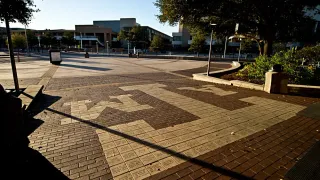May 16, 2022
Florida Lawmaker Won't Seek Reelection Amid Harassment Claim
READ TIME: 2 MIN.
Florida Rep. Ramon Alexander, the incoming leader of the House Democrats, says he will not seek reelection following allegations that he sexually harassed a former employee of Florida A&M.
Alexander made the announcement in social media posts Thursday, days after the Tallahassee Democrat reported details of the sexual harassment complaints made against him.
His statement did not mention the allegations, though he has previously apologized and told the paper the interactions were consensual.
"After thoughtful consideration and personal self reflection, I will not seek re-election for my final term in the Florida House of Representatives," Alexander wrote on social media, adding that it was his "true honor" to serve in the Legislature.
The allegations were included in complaints the employee made to the state human relations commission, the paper reported. The employee told the paper Alexander groped him multiple times and sent him unwanted sexually explicit texts and other material over the phone. The employee's attorney did not immediately respond to requests for comment from The Associated Press.
Alexander, who is married with children, has gained national media attention recently through his criticism of new Republican policies that limit discussion of race in schools.
Rep. Evan Jenne, the current House Democratic leader, issued a statement Thursday saying the caucus will meet soon to elect a new leader-designate. Earlier in the week, Jenne told the paper it would be irresponsible to comment with specificity given the "sensitive and serious nature" of the claims.
"He and his family are in my thoughts as they navigate into this next phase of their lives," Jenne wrote Thursday.
Alexander was elected to the House in 2016, representing a district that includes parts of the capital, Tallahassee.






